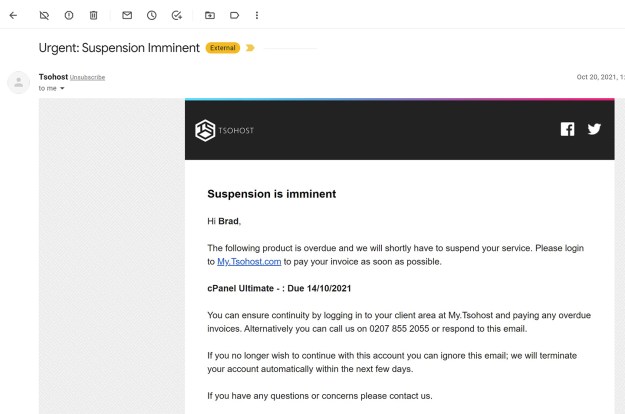
Yesterday was January 6, and you know what that means, right? The Epiphany! Time to start putting away the Christmas decorations!
If you consume news the way I used to, you might think it means something else. A certain anniversary. News organizations have gone sort of nuts about anniversaries over the past 20 years or so. I mean, we were always kind of that way about Pearl Harbor Day or other historical dates, but news folks have gotten way more into it in recent years in the constant madness of filling the content beast. Seems like now, it’s always the first, or fifth, or 10th anniversary of something we are obliged to remember.
Not that what happened last year wasn’t significant. If this nation ceases to exist while some of us are still alive, we’ll look back on Jan. 6 as being the moment when everything changed. Never before in our history had it even been conceivable for actual American citizens to have attacked, trashed and briefly taken the citadel of our government. Sure, Andy Jackson’s supporters trashed the White House that time, but that was just a party, backwoods style. (That was significant, too, though. They were celebrating the greatest disaster in an American election that occurred before 2016. It was the preview of what our civilization would look like when it disintegrated.)
Of course, things had been changing for awhile before Jan. 6, 2021. And not just politically.
Note that last bit. Not just politically. As much of a disaster as Donald Trump was and is, he is not the problem. The problem is the phenomenon of which he is merely a prominent symptom.
Basically, the American people — and people around the world — had been going completely stark, raving mad for awhile.
We worry about COVID — and we should — but it seems that some kind of infection swept through our world several years back and caused some serious damage to our brains.
We’ve been seeing the evidence for some time, but I’d particularly like to call your attention to this piece that was in the NYT the other day. It’s been getting some attention; I see Jennifer Rubin wrote about it in the Post as well.
The headline was “A Nation on Hold Wants to Speak With a Manager.” The subhed was “In our anger-filled age, when people need to shop or travel or cope with mild disappointment they’re devolving into children.” By the way, if you click on the link as I intend you to do, I advise you to quickly scroll down to the main body of the piece, to reduce your exposure to the extremely irritating animated graphic at the top. As though we didn’t have enough things driving us over the edge.)
Here’s the lede anecdote, plus the nut graf (here’s hoping this falls within the range of Fair Use):
Nerves at the grocery store were already frayed, in the way of these things as the pandemic slouches toward its third year, when the customer arrived. He wanted Cambozola, a type of blue cheese. He had been cooped up for a long time. He scoured the dairy area; nothing. He flagged down an employee who also did not see the cheese. He demanded that she hunt in the back and look it up on the store computer. No luck.
And then he lost it, just another out-of-control member of the great chorus of American consumer outrage, 2021 style.
“Have you seen a man in his 60s have a full temper tantrum because we don’t have the expensive imported cheese he wants?” said the employee, Anna Luna, who described the mood at the store, in Minnesota, as “angry, confused and fearful.”
“You’re looking at someone and thinking, ‘I don’t think this is about the cheese.’”
It is a strange, uncertain moment, especially with Omicron tearing through the country. Things feel broken. The pandemic seems like a Möbius strip of bad news. Companies keep postponing back-to-the-office dates. The Centers for Disease Control and Prevention keeps changing its rules. Political discord has calcified into political hatred. And when people have to meet each other in transactional settings — in stores, on airplanes, over the phone on customer-service calls — they are, in the words of Ms. Luna, “devolving into children.”…
Yep. The piece — all of which you should read — lists a lot of incidents like the one that was not really “about the cheese.”
If you look at the URL for the piece, you’ll see it includes “customer-service-pandemic-rage.” I think the problem predates the pandemic, just as it predates Trump, but there seems little doubt that, like Trump, COVID has helped bring it out.
Of course, it could just be the pandemic, and I’m just the wrong person to assess that. Whenever I read or hear about how horribly stressed people have been, I always have trouble identifying with it. There’s also the fact that since dairy is a deadly allergen to me — I think of what you call “cheese” as “spoiled bovine secretions” — I can’t imagine why someone would get in the car and drive to a store to buy someone anyway, whether it’s some special kind called “Cambozola” or not.
Yeah, I know if you’re a very young person who has career ambitions that can only be fulfilled at the office, and your spouse works too, and you have young children who may or may not be going to school tomorrow, this imposes certain stresses. But since none of those things describe me, I can’t feel it. And I know if you’ve lost someone to COVID, this is a horror of almost unimaginable proportions.
But if you don’t have any of those factors in your life — if you’d MUCH rather stay home than go to an office, see a movie in a crowd of people, attend a sporting event (shudder), eat out in a restaurant, or travel somewhere in an airliner (something that, honestly, was never fun in the healthiest of times, and which I could only make myself do because I deeply wanted to go to the place at the other end of the ordeal) — then it’s hard to understand this stuff.
And I especially can’t understand how someone my age (“a man in his 60s”) who should be past a lot of those stressors in life could be that desperate to eat a piece of cheese.
So it doesn’t work. And I’m left trying to understand what started all this.
Of course, as you know, I’ve been struggling with the challenge of creating a forum ruled by civility ever since I started blogging in 2005. And it gets harder every year. Lately, I notice that a lot of people have been getting as concerned about it as I have been.
Yesterday, I was talking with a thoughtful person who was trying to analyze the problem. How could someone go into a store or a commercial airliner or a public meeting and act this way? He offered this analogy: “If I enter your house, and you have a rule that I take off my shoes, I either take them off or leave,” he said. “It’s a matter of respect.”
Yes it is. And it immediately struck me that, as I look around me at the problem, it seems we’re living in a world that is absolutely crammed — all of a sudden — with people whose mamas didn’t raise them right.
So what happened?
























